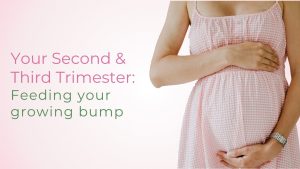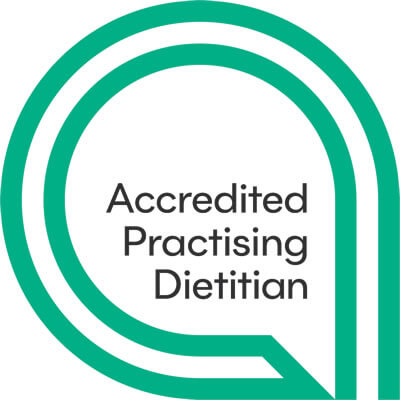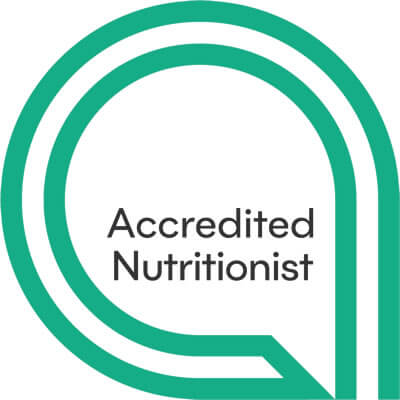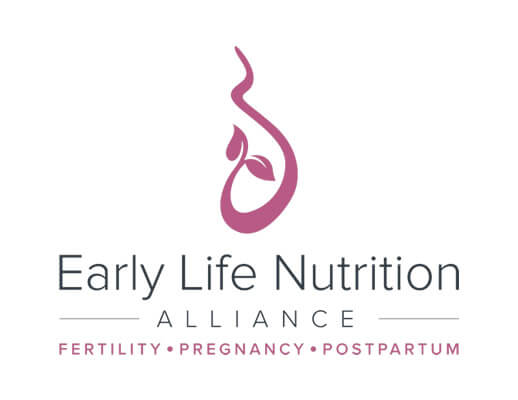The Importance of Preconception Nutrition: Fuelling the Future of Prenatal Health
We often hear that life-changing decisions can happen when we least expect them. That holds true for pregnancy. Surprisingly, around 50% of pregnancies are unplanned. So, whether you're actively trying to conceive (TTC) or not, this discussion on the importance of preconception nutrition is relevant to all.
Preconception nutrition technically encompasses the 3 to 6 months before conception, pregnancy, or fertilisation. Some even argue it begins even earlier, involving both partners—the makers of eggs and sperm. The maturation of these oocyte and sperm cells takes approximately three months. Although sperm are produced on-demand, eggs have been present since individuals with a uterus were in-utero themselves.
However, the health behaviours of both partners significantly impact cell structure, the surrounding environment, and, consequently, cell maturation. Consider trans fatty acids, which have been detected in seminal fluid (sperm). Research has linked higher levels of trans fatty acids to poorer sperm health. Notably, the body doesn't naturally produce trans fatty acids; they enter the system from dietary sources. In other words, the trans fats found in sperm come from the foods we consume. This isn't meant to induce fear, but rather to emphasise the profound influence of nutrition on cells and their environment, the body.
Drawing from my own experience in researching preconception diets, I’ve found that fertility plans had no significant impact on nutrition choices. And, here's a spoiler alert, these nutrition choices often lacked essential components like sufficient veggies, fruits, and other vital prenatal foods.
But, there are numerous other reasons to prioritise preconception nutrition. Even if you begin taking a prenatal supplement early, establishing and nurturing a relationship with nourishing foods lays the foundation for fertility, pregnancy, postpartum, breastfeeding, and beyond. It's a journey that extends far into the future.
Why Prioritise Preconception Nutrition?
This phase of your journey to pregnancy is not merely a precursor but a critical window for establishing a foundation for future health—for both mother and the child. Prioritising preconception nutrition goes beyond mere dietary choices; it's about preparing your body and mind for the incredible journey ahead. From addressing nutrient deficiencies to setting the stage for a healthy pregnancy, and even influencing future generations, the impact of this early nutritional planning is profound and far-reaching.
Nutrient Deficiencies:
Identifying and addressing nutrient deficiencies early is critical for both fertility and pregnancy. Micro and macronutrients play a pivotal role in promoting healthy fertility and pregnancy. A prenatal blood test can provide insights into current iron, vitamin B12, vitamin D, and folate levels. Dietary analysis can help identify gaps in your macronutrient ratio and essential pregnancy nutrients such as calcium, iodine, zinc, selenium, and more.
Morning Sickness:
You may have heard someone say, "I'll eat better when I'm actually pregnant." Pregnancy is indeed a great motivator for change, but it often comes with food aversions, nausea, and vomiting, especially during the first trimesters. Nutrient deficiencies can exacerbate nausea, so it's vital to get ahead of your nutrition early.
Pregnancy Health:
Building a solid foundation leads to better long-term health and reduces the risk of complications. Establishing habits supportive of positive food relationships, good nutrition, sleep, and fitness practices will carry through to pregnancy, postpartum, and beyond. By prioritising preconception nutrition, you're essentially eliminating one less thing to fret about when pregnancy occurs.
Role Modelling Good Nutrition:
Your positive health habits preconception will serve as a model for your children. Parental health behaviours strongly influence children's eating patterns, and role modelling nutrition is more effective than attempting dietary control.
Elevated Food Exposure: Nutrition exposure during pregnancy affects a baby's taste preferences, food allergies, and epigenetic programming. This exposure can impact DNA methylation, alter gene expression, and even influence a baby's future taste preferences.
Managing Health Conditions:
Preconception or a delay in fertility can serve as a trigger for the diagnosis of various health conditions, including endometriosis, polycystic ovarian syndrome (PCOS), and metabolic issues. Nutrition can play a significant role in managing these conditions.
What Nutrients are Important in Preconception Nutrition?
As we look more into the importance of preconception nutrition, it's essential to spotlight the key nutrients that play a pivotal role in this crucial phase. These nutrients aren't just building blocks; they're the foundation stones for a healthy pregnancy and the wellbeing of both parents-to-be.
Folate/Folic Acid
Often heralded as the star of preconception nutrition, folate, or its synthetic form, folic acid, is crucial. This B-vitamin is essential for reducing the risk of neural tube defects in the developing foetus. It's not just beneficial but necessary, and incorporating foods rich in folate like leafy greens, citrus fruits, and fortified cereals, or a folic acid supplement, can make a world of difference.
Iron
Iron takes centre stage in supporting the increased blood volume during pregnancy. It’s vital for preventing iron-deficiency anaemia, a common condition in many women of childbearing age. Rich sources of iron include lean meats, beans, tofu, and spinach. Remember, pairing iron-rich foods with vitamin C sources can enhance absorption, making for a powerful nutritional duo.
Calcium
This mineral is a cornerstone for building strong bones and teeth for both mother and child. It’s a key player in muscle function, nerve signalling, and heart health. Dairy products, fortified plant milks, leafy greens, and almonds are excellent sources of calcium.
Omega-3 Fatty Acids
Often unsung heroes, omega-3s are crucial for the development of the baby's brain and eyes. They also support the mother's heart health. Sources like fatty fish, flaxseeds, and walnuts, or a high-quality supplement, can ensure adequate intake.
Embracing a diet rich in these nutrients during the preconception period is more than just eating well; it's an act of love and responsibility towards the future. It's about preparing your body for the remarkable journey of bringing a new life into this world. So, let’s nourish not just our bodies, but our futures, with the power of informed and conscious nutrition choices.
The Importance of Preconception Nutrition: What to Include in Your Diet
If pregnancy is on your horizon, consider scheduling a consultation with your general practitioner for a prenatal checkup. You can also opt for an assessment with a prenatal and fertility dietitian to evaluate your diet's quality.
Here's a general guideline to get you started, but remember, these tips don't replace personalised guidance from your healthcare provider:
What to Include:
- Plenty of fruits and veggies daily; the more colours on your plate, the better.
- Whole grains like oats, barley, rice, and quinoa.
- Antioxidant-rich foods such as fruits and veggies.
- Nuts and seeds.
- Herbs and spices.
- Marine-based omega-3s like oily fish.
- Lean and plant proteins like tofu, edamame, lean poultry, and red meats.
- Mono and polyunsaturated fats (healthy fats) like extra virgin olive oil.
- Calcium-rich foods like dairy, bony fish, and leafy greens.
- Folate-rich foods like legumes and spinach.
- Hydration; drink plenty of water.
Consider Adjusting Your Intake of:
- Alcohol.
- Coffee.
- Saturated and trans fats.
- Foods high in added sugars.
Preconception Supplements vs. Food Sources
Understanding the balance between obtaining nutrients from food sources and supplements is crucial in preconception nutrition. A diet rich in a variety of whole foods is fundamental, providing a wide spectrum of nutrients essential for fertility and early development. However, there are moments when supplements become necessary to fill in nutritional gaps. For instance, while folate is abundant in leafy greens and legumes, its supplemental form, folic acid, is often recommended for its critical role in preventing neural tube defects and may be difficult to consume in sufficient quantities through food alone.
It's important to remember that supplements are designed to complement, not replace, a nutritious diet. They ensure that essential nutrients are consumed at optimal levels, especially when dietary intake may fall short. The bioavailability of nutrients can vary between food and supplements, and the natural synergy found in whole foods often enhances nutrient absorption.
Before introducing supplements into your preconception plan, consulting a Dietitian like Simple Steps Nutrition is essential. This ensures a tailored approach to supplementation, harmonising with your dietary habits and specific health needs. This strategic combination of whole foods and supplements in your diet paves the way for a well-nourished journey to parenthood, ensuring both you and your future child receive the best possible nutritional start.
The Importance of Preconception Health in Men
While the spotlight of preconception health often shines brightest on women, it's crucial to recognise that men's health plays an equally important role in the journey to parenthood. The narrative around conception is incomplete without acknowledging the significant impact of men's nutrition and lifestyle choices on fertility.
Just as a woman nurtures her body in preparation for pregnancy, a man's health at the time of conception can influence not only the chances of successful fertilisation but also the future health of the baby. Sperm quality, which is a cornerstone of male fertility, is profoundly affected by dietary and lifestyle factors.
Nutrition, in particular, plays a pivotal role in enhancing male fertility. Essential nutrients like zinc, selenium, and omega-3 fatty acids are known to improve sperm count and motility. Zinc, found in lean meats, nuts, and seeds, is vital for testosterone production and sperm formation. Selenium, present in seafood, brazil nuts, and grains, protects sperm from oxidative damage. Omega-3s, abundant in fatty fish and flaxseeds, improve sperm membrane fluidity.
Furthermore, antioxidants such as Vitamin C and E, found in fruits and vegetables, are crucial in protecting sperm DNA from oxidative stress. Lycopene, an antioxidant in tomatoes, has been linked to improved sperm quality. The inclusion of these nutrients in a man’s diet can be a game-changer in boosting fertility.
Equally important are lifestyle choices. Regular exercise, maintaining a healthy weight, and managing stress are instrumental in optimising male fertility. On the flip side, habits like smoking, excessive alcohol consumption, and exposure to environmental toxins can adversely affect sperm health.
In the preconception period, it’s essential for men to be proactive in their health choices. A balanced diet, rich in key nutrients, combined with a healthy lifestyle, not only enhances fertility but also sets the stage for the overall health of the future family.
As we acknowledge the dual roles in this journey, it becomes clear that preconception care is a shared responsibility. Men’s preconception nutrition and health is not just a pathway to improved fertility but a commitment to the well-being of the next generation. It’s about making conscious choices today for a healthier tomorrow.
Environmental and Lifestyle Factors to Preconception Health
In the intricate tapestry of preconception health, diet is but one crucial thread. Equally significant are the environmental and lifestyle factors that weave together to impact overall well-being. A holistic approach to preconception health recognises that our bodies are a reflection of the world around us and the lifestyle we lead. Stress, often an overlooked component, can have profound effects on fertility. It's essential to adopt stress-management techniques like mindfulness, yoga, or meditation to create a serene internal environment conducive to conception.
Our external environment also plays a pivotal role. Exposure to toxins, whether in the air we breathe or the products we use, can adversely affect reproductive health. It becomes crucial to be mindful of our surroundings – opting for natural, non-toxic household and personal care products, and staying attuned to air quality and environmental conditions.
Lifestyle choices extend beyond diet and exercise. Adequate sleep, hydration, and a balance between work and relaxation are fundamental to preconception health. Embracing a lifestyle that promotes physical, emotional, and mental well-being not only enhances fertility but also prepares one for the journey of parenthood that lies ahead.
By focusing on these holistic aspects, we broaden our perspective on preconception care. It’s about nurturing a harmonious environment – both within and around us – to foster the best possible start for the new life we hope to create. This holistic well-being is a gift not just to ourselves and our future child, but a testament to the love and care we invest in our journey to parenthood.
The Importance of Preconception Nutrition: A Vital Aspect of Reproductive Health
The journey towards parenthood begins long before conception. The choices we make in our diets and lifestyles during the preconception period lay the groundwork for the health and well-being of both parents and their future child. This article has underscored the profound significance of preconception nutrition – it's not just a matter of good eating habits, but a proactive approach to fostering optimal health and fertility.
By understanding the impact of nutrients like folate, addressing potential deficiencies, and being mindful of factors like sperm and egg quality, we empower ourselves with the knowledge to make informed decisions. This proactive approach is not only beneficial for those actively trying to conceive but also for any individual considering parenthood in the future.
Embracing a healthy, balanced diet rich in essential nutrients forms the cornerstone of preconception care. It’s about creating a nurturing environment even before a new life begins, ensuring that when the time comes, both parents and child have the best possible start.
As we close this chapter, let’s carry forward the message that preconception nutrition is a vital aspect of reproductive health and a critical first step in the journey of parenthood.
Book Your 1 on 1 Consultation
If you have questions or seek personalised advice, don't hesitate to book a one-on-one consultation anytime. Your journey to parenthood begins with nutrition, so fuel it wisely!








